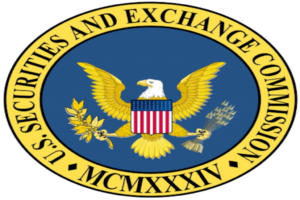
The Securities and Exchange Commission announced that it had filed 200 total enforcement actions in the first quarter of fiscal year 2025, which ran from October through December 2024, including 118 standalone enforcement proceedings. The SEC filed a total of 75 enforcement actions in October 2024 alone. Those numbers represent the most actions filed in a single quarter since at least 2000.
The actions filed in the first quarter addressed a wide range of violations, including financial misstatements, misleading disclosures to brokerage customers, failures by advisory firms to disclose conflicts of interest, alleged bribery schemes, frauds targeting retail investors, misleading statements about artificial intelligence, and more.
The flurry of activity may have resulted from a mindset of wrapping up enforcement activity before a change in presidential administrations. “Investors and issuers alike benefit from the Commission’s efforts to hold wrongdoers accountable,” said SEC Chair Gary Gensler, who resigned as Donald Trump was sworn in as President. “I’m proud of the incredible work of the Division of Enforcement and colleagues around the agency to track down misconduct and protect the investing public.”
“As these impressive figures reflect, the Division has not taken its foot off the pedal in the new fiscal year,” said Sanjay Wadhwa, acting director of the Division of Enforcement at the SEC. “On the contrary, the hard work of the dedicated staff in the Division, with assistance from throughout the Agency, has resulted in the busiest start to a fiscal year that I have witnessed in my 20-plus years at the Commission, providing invaluable protections to investors and promoting fairness and integrity in the securities markets.”
The SEC also continued its emphasis on crediting companies that self-police, self-report, remediate, and otherwise cooperate with the SEC’s investigations. The agency filed more than 40 enforcement actions from Jan. 1, 2025, though Jan. 17, 2025, indicating that the Division’s high level of productivity continues into the second quarter of fiscal year 2025.
Enforcement Actions Expected to Decline Under Trump
Although the SEC began the first quarter with a tremendous amount of enforcement actions, such numbers are expected to decline as the transition to the Trump administration has begun. President Trump has long expressed his intention of rolling back regulations and shifting towards a pro-business approach. To this end, Trump has appointed SEC Commissioner Mark Uyeda, a Republican, to serve as acting chairman of the agency.
Uyeda will likely serve as acting chair until Trump’s nominee for Gensler’s successor, Paul Atkins, completes his Senate confirmation process. Both Uyeda and Atkins are considered more pro-business, as well as friendly to the cryptocurrency community than Gensler.
According to a spokesperson at Jones Day, the firm expects the SEC to utilize enforcement actions as a last resort rather than a first. “The agency also may move away from what some have characterized as an “enforcement-first” approach toward a model that provides more upfront guidance,” according to the firm. “Moving forward, the SEC may leverage its examinations and policy divisions to identify areas of widespread noncompliance and then issue rules and guidance to effect change.”
Another law firm, Hogan Lovells, anticipates a reduction in regulations, citing historical trends under a Republican-led Commission as the basis for this expectation.
“Historically, Republican-led Commissions have prioritized reducing compliance costs for public companies and enforcing rules more narrowly,” according to a Hogan Lovells spokesperson. Under President Trump’s new SEC Chairman, Mark Uyeda, such priorities are expected to be focused on. “Although the goals of the SEC’s agenda under the Trump administration remain unknown, the firm expects “a renewed focus on reducing regulatory burdens, adhering to established materiality standards, a curbing of perceived enforcement overreach, and an effort to adopt an enforcement agenda that, broadly speaking, will be more favorable to corporations.”
As the SEC transitions under new a new administration, the agency’s enforcement priorities and regulatory approach are expected to shift significantly. While the first quarter of fiscal year 2025 saw unprecedented levels of enforcement activity, the upcoming years may bring a more measured approach, with an emphasis on reducing regulatory burdens and promoting corporate compliance through guidance rather than enforcement. ![]()
Jacob Horowitz is a contributing editor at Compliance Chief 360°

